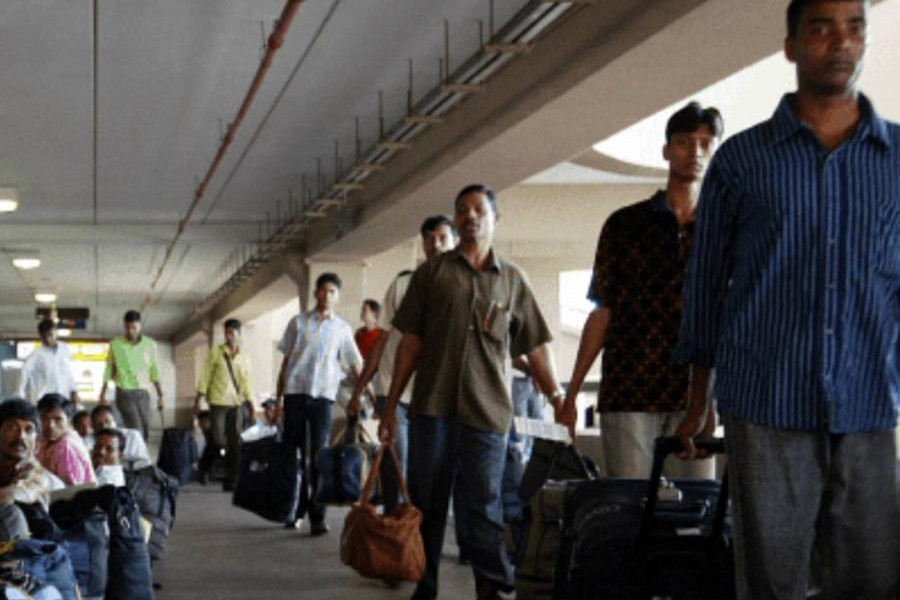The World Bank (WB) is set to provide $150-million to create employment opportunities for low-income urban youths and migrant returnees and raise their productivity level, officials at the Economic Relations Division (ERD) said on Saturday.
Both the groups are hard-hit by the ongoing Covid-19 pandemic.
A senior ERD official said the Palli Karma Sahayak Foundation (PKSF) will be responsible for implementing the project, styled, 'Recovery and Advancement of Informal-sector Employment' with the WB aid money.
The ERD official said the WB has already discussed with the relevant government agency and assured them of extending the loan.
"The fund will create employment opportunities in the informal sector in urban areas. The migrant workers who returned home losing jobs abroad will also get preference."
"They (the workers) will be trained to restart their life," the ERD official added.
A Finance Division official said the main beneficiaries of the project will be the poor, less-educated youths aged between 15 and 34 in the labour market of major urban centres of the country.
"We'll provide some cash support to those who lost jobs and returned home from abroad. The objective is to reintegrate them in the local labour market," he mentioned..
Besides, those who returned home due to the pandemic will also get some support to return to their workplaces overseas following the easing of the Covid-19 situation , the official cited.
Meanwhile, the challenges facing low-income urban youths are complex and different from other segments of the labour market.
According to the WB, a vast majority of Bangladeshi youths are working in the informal sector (44 per cent) or are self-employed (17 per cent). Most of them having low productivity usually earn less.
The average monthly wage for the informally employed youth is estimated at Tk 9,581 and that for the formally employed youth are around Tk 13,914.
This suggests a substantial gap between the informally wage-employed (who tend to be less-educated and from poorer households) and formally wage-employed (who tend to be better-educated and from higher-income households).
More than 98 per cent of the self-employed youth are involved in microenterprises, which also tend to be informal and less productive compared to larger firms, the WB said.
The Finance Division official said they will first build the system to help workers identify their aspirations, strengths and constraints in the field of human capital and finance.
Then they will address the specific needs of improving employability and productivity of the youth from low-income households through a package of services like imparting essential life skills.
Other services include on-the-job learning opportunities through informal apprenticeships, access to seed capital, and coaching and mentoring.
The government will also provide some direct financial support to informal urban self-employed individuals whose livelihoods otherwise had been well before the Covid outbreak.
"So, we're hopeful of getting a good result from the proposed WB-funded project in Bangladesh," remarked the Finance Division official.
According to the ERD official, the fund is likely to be confirmed within months through signing a deal.


